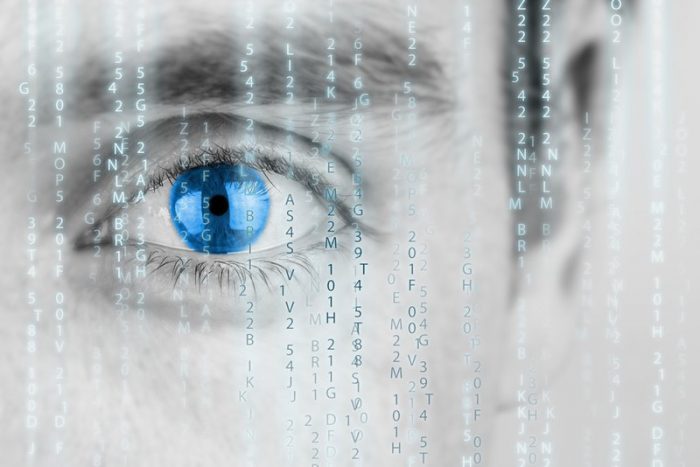Public Law
Constitution
The area of law that deals with the interpretation and application of a nation’s constitution is known as constitutional law. The framework of values and guidelines that define how a state or country is governed, including the rights of its people and the authority of its government, is known as a constitution. Constitutional law is concerned with matters like the division of authority among the various governmental branches, the defence of individual liberties, and the procedure for revising the constitution. It is crucial to make sure that a nation’s government preserves the values of democracy, the rule of law, and individual rights while operating within the bounds of the constitution.
-
Constitutional interpretation
-
The division of powers
-
Personal rights
-
Federal vs. State powers
-
Amendments to the constitution
-
Legal advocacy
-
Minority protections under the constitution
Constitutional interpretation
The language in the Constitution is frequently vague and susceptible to interpretation. For instance, because it is not often obvious what kinds of communication are protected, the First Amendment’s guarantee of “free speech” has been the focus of various discussions. When there is disagreement over the interpretation and application of constitutional provisions, legal problems may result.
The division of powers
The Constitution establishes various governmental branches, each with its own functions and authority. Legal issues may develop when one branch exceeds its power or meddles in the operations of another branch. On the basis of the separation of powers, for instance, the president’s use of executive orders to bypass Congress has been contested.
Personal rights
In addition to safeguards against arbitrary searches and seizures, the Constitution contains various guarantees of individual rights, including freedom of expression, of the press, and of religion. These rights could clash with other interests, like those of public safety or national security, though. When courts must weigh conflicting interests and decide whether specific activities violate a person’s constitutional rights, legal difficulties may develop.
Federal vs. State powers
The Constitution gives the federal government specific authority while reserving other powers for the states. There may be disagreements on the level of government that has control over a specific matter. The Affordable Care Act, for instance, sparked legal disputes about whether the federal government had the right to compel people to buy health insurance.
Amendments to the constitution
Although there is a procedure for modifying the Constitution, there may be conflicts regarding the intent and ramifications of proposed changes. For instance, the Equal Rights Amendment has been the focus of discussion for decades, with some contending that it would necessitate major adjustments to current laws and regulations.
Legal advocacy
Some contend that the Constitution should be interpreted in light of current values and social conditions, while some contend that the judiciary should only interpret the Constitution based on its original meaning. When judges interpret the Constitution in ways that are viewed as activist or too broad, this is known as “judicial activism,” and it can lead to legal problems.
Minority protections under the constitution
Minority rights are protected by the Constitution, although there may be differences in how these rights should be implemented. For instance, the Supreme Court has rendered a number of significant rulings on topics including voting rights, LGBT rights, and affirmative action, with varying interpretations of how the Constitution is applied in these cases. As courts debate the constitutional protections for minority groups, legal difficulties may develop.
Find Best Lawyers and Legal help in
Latest Articles
Tell us more about your problem.
Please give a brief description about what it is you need to talk to our lawyers about ?
Frequently Asked Questions
How are constitutional rights protected and enforced, and what remedies are available if they are violated?
Constitutional rights in the United States are protected and enforced through a combination of legal and political processes. There are several key mechanisms for protecting and enforcing constitutional rights, including:
Judicial Review: The federal courts have the power to review and strike down laws or government actions that violate constitutional rights. This power is derived from the principle of judicial review, which was established in the landmark case Marbury v. Madison.
Civil Litigation: Individuals who believe their constitutional rights have been violated can file lawsuits against the government or other individuals. If successful, they may be entitled to damages or injunctive relief to remedy the violation.
Administrative Complaints: Many state and federal agencies have procedures in place for filing complaints about alleged violations of constitutional rights. These complaints may be investigated by the agency and can result in corrective action or other remedies.
Political Action: Constitutional rights are also protected and enforced through political action, such as lobbying, protests, and activism. Through these means, citizens can raise awareness of constitutional issues and pressure elected officials to take action to protect and enforce these rights.
If a person’s constitutional rights have been violated, there are a number of remedies that may be available. These include:
Injunctive Relief: A court may order the government or other party to stop engaging in the conduct that violates the person’s constitutional rights.
Damages: If a person has suffered harm as a result of a constitutional violation, they may be entitled to monetary damages to compensate them for that harm.
Declaratory Relief: A court may issue a ruling declaring that a particular law or government action violates the constitution, even if no specific remedy is ordered.
Overall, the protection and enforcement of constitutional rights is a complex process that involves a range of legal and political mechanisms. It is important for individuals whose rights have been violated to understand their options and work with experienced legal counsel to pursue the most effective and appropriate remedies.
How does constitutional law apply to issues of privacy and surveillance, such as government monitoring or data breaches?
Constitutional law plays a critical role in regulating issues of privacy and surveillance, particularly concerning government monitoring and data breaches. The Fourth Amendment of the U.S. Constitution protects against unreasonable searches and seizures, including searches of individuals’ private information and property.
Government monitoring and surveillance can implicate Fourth Amendment rights, particularly when the government seeks to obtain private information or conduct searches without a warrant or without probable cause. In cases involving government surveillance, the courts will often consider whether the government’s actions were reasonable under the circumstances and whether they complied with constitutional and statutory requirements.
Data breaches, on the other hand, can implicate both Fourth Amendment rights and other constitutional protections, such as the Due Process Clause and the Fifth Amendment’s protection against self-incrimination. Data breaches can compromise individuals’ private information, including personal identifying information, financial data, and sensitive medical or legal information.
In cases involving data breaches, individuals may have legal claims against the entities that failed to adequately protect their private information. These claims may include negligence, breach of contract, and violation of state and federal privacy laws.
The courts will often consider the reasonableness of an entity’s security measures, whether the entity adequately notified individuals of the breach, and whether individuals suffered any harm as a result of the breach. In cases where the government was responsible for the breach, individuals may have additional constitutional claims against the government for violating their Fourth Amendment and Due Process rights.
Overall, constitutional law plays a critical role in regulating issues of privacy and surveillance, particularly in cases involving government monitoring and data breaches. The courts will often balance individuals’ privacy rights against the government’s interest in conducting surveillance or against the interests of entities that collect and store individuals’ private information.
What is the impact of cultural or societal changes on constitutional interpretation and application?
Cultural or societal changes can have a significant impact on the interpretation and application of the US Constitution. As social norms, values and attitudes evolve over time, the meaning and significance of constitutional provisions may change as well. This can result in new interpretations of existing provisions or even the emergence of new constitutional rights altogether.
One example of this is the evolution of equal protection under the law. The Supreme Court’s interpretation of the Equal Protection Clause of the Fourteenth Amendment, which guarantees equal treatment under the law, has expanded significantly over time to include protections for marginalized groups such as women, racial minorities, and LGBTQ+ individuals. This expansion has been driven in part by societal changes and increased recognition of discrimination and inequality based on these characteristics.
Another example is the interpretation of the First Amendment’s protection of free speech in the context of social media and online communication. As the internet has become an increasingly important forum for public discourse, courts have grappled with how to apply traditional principles of free speech to online platforms and digital communication. This has led to a re-evaluation of some longstanding constitutional doctrines, such as the distinction between content-based and content-neutral restrictions on speech.
Overall, cultural and societal changes can influence the way that constitutional provisions are interpreted and enforced. This can lead to changes in legal doctrine and policy over time, as courts and other institutions respond to shifting social norms and values.













